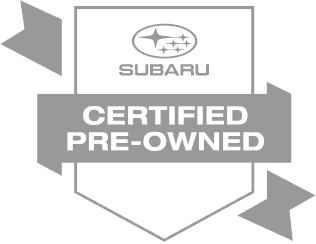

It's safe to say that things are just plain higher in Denver -- like the altitude above sea level and the standards we expect from our vehicles, which makes Subaru models so popular.
But because of that higher altitude, did you know that gasoline sold in Denver and a couple other Rocky Mountain states is actually a little bit different than what you'll get at sea level? The octane rating is in fact noticeably lower, which can lead to performance problems at lower altitudes. However, here in the Mile High City, 85 octane gas works great in most cars. On this page, the experts at the Mike Shaw Subaru service center will tell you why -- and how to pick the right gas for your Subaru. With more options than ever at the pump today, take a look at this handy guide.

3. The Difference Between Regular And Premium Gas
Most ordinary passenger cars will run just fine on regular gas. In fact, the higher octane rating of mid-grade and premium gas has no benefit for a typical engine. While you might occasionally like to "treat" your car to a tank of premium fuel, it won't improve performance or clean the engine in any meaningful way.
However, in high-performance engines that operate at higher compression ratios, high octane gas is required to prevent something called engine knock. The octane rating describes how stable the gasoline is, and how resistant it is to knocking. In a high-compression sports car engine, low-octane fuel can partially combust prematurely, causing reduced performance and a repetitive "pinging" sound from the engine. Over time, engine knock can cause damage to your car's exhaust, pistons and cylinder walls.

To prevent engine knock and get the right performance from sporty Subaru models like the BRZ, WRX and WRX STI, be sure to check your owner's manual and only use the gas that's recommended for your car.
2. Octane Ratings At Altitude
They say the air is rare here in the Rocky Mountains, and that actually has an effect on how your engine performs. Because the air is less dense, less air flows to your car's engine. This translates to a slightly richer air-fuel ratio, and deters engine knock. For that reason, you'll find that regular gas carries an 85 octane rating here in Denver and throughout Colorado, Wyoming, Utah and Montana. In most states, regular unleaded is rated slightly higher at 87.
In most cases, you won't experience any problems running 85 octane in an ordinary car when a few thousand feet above sea level. However, if you do detect that tell-tale pinging noise, it may be wise to try filling your car with mid-grade gasoline which is rated at 87 octane here in Denver.

1. Using Ethanol Blends In Your Engine
Growing in popularity at more and more gas stations these days are various gasoline-ethanol blends that can be used instead of straight-up gasoline. You may have heard of E-85 FlexFuel which can only be used in a handful of cars specifically designed for it. However, more conservative blends can be used in ordinary passenger cars!
For example, whereas FlexFuel is made up of 85% ethanol, E-15 is another popular option that is only 15% ethanol. It's typically less expensive than ordinary gasoline, and can be used with no drawbacks in most cars built after 2002 featuring fuel injection technology. And since ethanol has a very high octane rating, it can even be used in performance cars! E-15 has an octane rating of 88, making it suitable for most daily drivers. E-30 has an octane rating of 94 so it's even more premium than regular premium gasoline, so it's a great choice for filling up your high-performance Subaru. You can save some extra scratch, get ideal performance and use less fossil fuels when you find the ethanol blend that's right for your car.
Mike Shaw Subaru
1650 W 104th Avenue
Thornton, CO 80234
- Sales: 720-724-9280
- Service: 720-724-9280
- Parts: 720-724-9280







